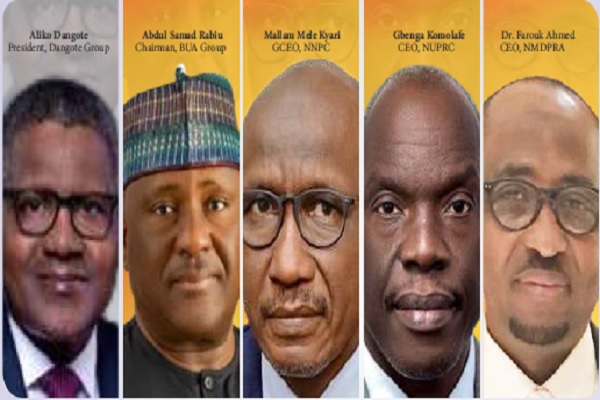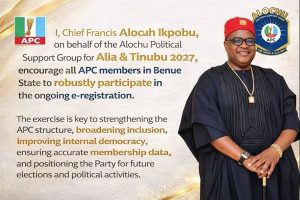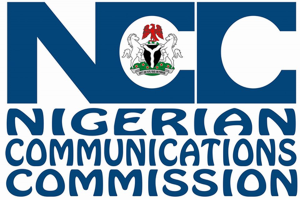By our energy correspondents
The vibes emanating from and around the Dangote Petroleum Refinery and Petrochemicals are, to say the least, most disconcerting. In the last one month or so, allegations and counter allegations have kept pouring in from competitors, Dangote Group, regulators, public officers, local oil marketers, legislators and individuals, all begging for believability. This has left the subject matter – Dangote Group and its baby, the Dangote Refinery – languishing in frustration. It is as if the whole episode is primed to inflict the maximum damage on the $19billion investment conceived to be “game changer” in Nigeria’s downstream petroleum industry.
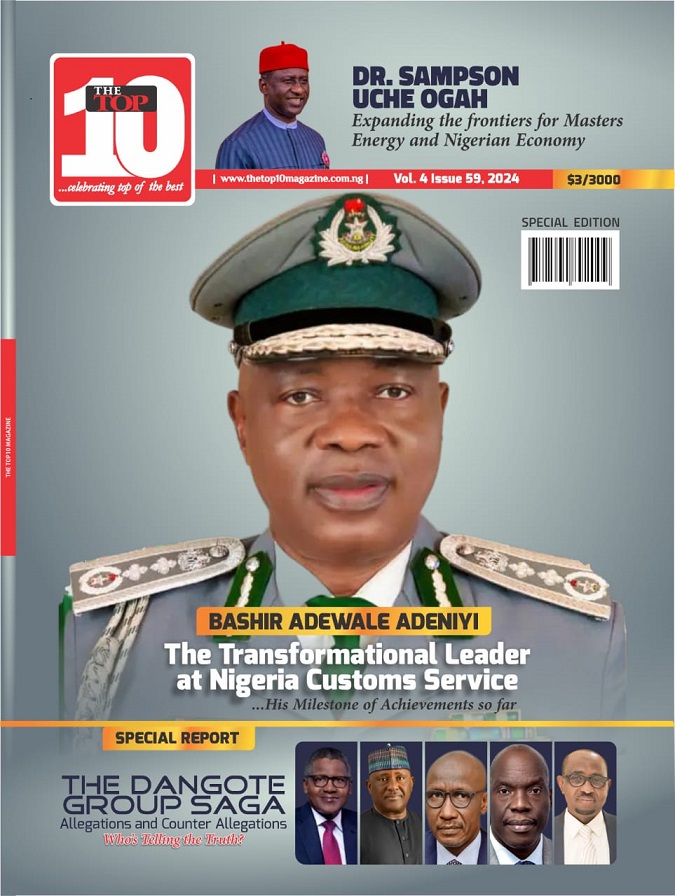
What happened?
Africa’s biggest oil refinery and the world’s biggest single-train facility was billed to fill the vacuum created by failed government-owned refineries, end decades of massive petroleum product importation and intermittent product shortages, and eliminate payment of huge subsidies by the government.
Unfortunately, since its conception about a decade ago, the refinery has been dogged by controversies bothering on allegations and counter allegations of deliberate sabotage, conspiracy and antitrust (monopolistic) tendencies between its promoters and competitors.
The exchange of allegations is the continuation of a pattern associated with its parent company, the Dangote Industries Limited (DIL), better known as the Dangote Group, albeit involving different parties now. Aliko Dangote, the Group’s founder and the acclaimed richest man in Africa, has such a reach and influence that he is feted across much of the continent by presidents and prime ministers. In Nigeria, he enjoys cosy relationships with successive leaders who consider him a champion of domestic industry as the country’s largest employer outside of the government.
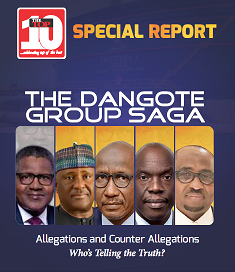
Over the years, many competitors in his key product areas — cement, flour and sugar – have come to view him as a pampered but ruthless government-favoured monopolist who brooks no competition. Dangote is often accused of using underhanded tactics against competitors directly or through government machinery, engaging in illegal foreign exchange deals, money laundering, among others.
The most sensational case which captures the full essence of the Dangote saga was the Group’s protracted brush with the BUA Group, Nigeria’s second-largest cement producer. The simmering feud between the two competitors blew open in November 2023 through media reports that the Dangote Group was being investigated by a Special Investigator, Jim Obazee, commissioned by the government, on allegations of illegal foreign exchange deals and money laundering. Dangote Group promptly denied the allegations and accused BUA of sponsoring the media reports to tarnish its reputation. In a press statement, Dangote Group said the reports were a reharsh of allegations earlier sponsored in 2016 as advertorials that had since been retracted with apologies by the media houses that published them. BUA responded with a counter statement accusing Dangote of blackmail and chronicling the competitor’s several acts of sabotage against its businesses and operations across the country “intended to drive us out of business.”
In spite of denials by Dangote, the Economic and Financial Crimes Commission (EFCC), Nigeria’s anti-graft agency, went ahead to launch an investigation into the allegations of illegal foreign exchange deals and money laundering. However, over half a year after the agency’s officials “stormed” the Lagos head office of the company in search of documents, Dangote Group is yet to be indicted.
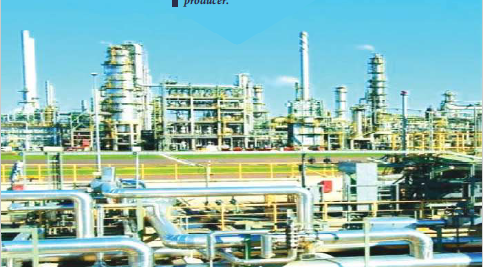
The latest episode in the Dangote Group saga began at the instance of the Group itself out of apparent frustration by the interminable delay in the full operational take off of the Dangote Refinery. The 650,000 barrels per day (BPD) capacity integrated refinery is capable of meeting 100 percent of the Nigerian requirement of all refined products, leaving some surplus for export. The project is projected to create a market for $21billion per annum of Nigerian crude.

However, for over a year after the refinery was commissioned by former President Muhammadu Buhari, its flagship product, premium motor spirit (gasoline or petrol), is yet to hit the market. Currently, the refinery produces diesel and aviation fuel, and Dangote said this has brought down diesel pump price. He announced that petrol would be pumped out in August which could also moderate its pump price, depending on variables like source and price of crude oil and the exchange rate. The refinery currently employs 30,000 people, of which 97 percent are Nigerians. The figure is projected to go up to 100,000 as productions ramps up.
Who alleged what?
Apparently faced with the prospect of failure to meet deadline for the upteenth time – for the production of petrol in August – Dangote Group decided to go public with its challenges. Its Vice President, Oil and Gas, Edwin Devakumar, alleged that the International Oil Companies (IOCs) were deliberately and willfully frustrating the refinery’s efforts to buy local crude oil by jerking up its premium price above the market price, thereby forcing it to import crude from countries as far as United States, with its attendant high costs. He told a group of energy editors at a one-day training programme in June, organised by the Dangote Group, that the granting of licenses indiscriminately to marketers by the Nigerian Midstream and Downstream Petroleum Regulatory Authority (NMDPRA) to import dirty refined products into the country was a major threat to the survival of the refinery.
Devakumar lamented: “While the Nigerian Upstream Petroleum Regulatory Commission (NUPRC) are trying their best to allocate the crude for us, the IOCs are deliberately and willfully frustrating our efforts to buy the local crude…It seems that the IOCs’ objective is to ensure that our Petroleum Refinery fails.
“It appears that the objective of the IOCs is to ensure that Nigeria remains a country which exports Crude Oil and imports refined Petroleum Products. They (IOCs) are keen on exporting the raw materials to their home countries, creating employment and wealth for their countries, adding to their GDP, and dumping the expensive refined products into Nigeria – thus making us to be dependent on imported products…”
He appealed to the Federal Government and the National Assembly to urgently intervene for speedy implementation of the Petroleum Industry Act (PIA) and to ensure the interest of Nigeria and Nigerians are protected.
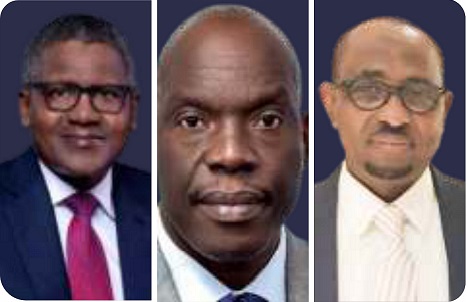
The company went a step further to organize an elaborate media tour of the refinery complex in Lekki, Lagos, on June 24 for a better appreciation of its investment and challenges by the public. Dangote who personally conducted journalists on the 12-hour tour, did not fail to use the opportunity of the assemblage of 102 senior journalists from all over the country, one of largest media tour in Nigeria’s history, to re-echo Devakumar’s outcry about the crude oil supply conundrum and his other bitter experiences with the refinery project. He lamented: “We possibly could have had a second thought if we knew the magnitude of what we were going into. Yes, maybe we wouldn’t have started if we knew…but it’s like when you are swimming and you’re in the middle of the sea, what do you do when you’re getting tired? You have no option but to continue and swim out.”
But rather than earn him sympathy, Dangote’s outcry opened a new floodgate of both familiar and fresh allegations. The IOCs and oil industry regulators – NMDPRA and NUPRC – came down heavily against Dangote.
The Nigerian media, quoting an anonymous IOCs proxy exhaustively, debunked Devakumar’s allegations with facts and figures. To start with, he said Dangote is a monopolist who finds things difficult without government’s support and the privilege of monopolies. He said that in spite of the fact that Dangote is paying about $1.5/MMBTU, which is one of the cheapest rates (GBI) in the country, he is owing the IOCs millions of dollars in gas payment arrears in Naira indexed to the dollar.
He explained that after sharing Nigeria’s daily average crude oil production of about 1.25 million barrels per day in line with the Profit-Sharing Contract (PSC), deduction of crude dedicated to government debt repayment and oil theft, what remains to be sold to refineries, local and foreign, is only about 200,000 barrels per day. Dangote’s refinery needs about 650,000 per day. “Now, where does Dangote expect NNPCL to get the 650,000 barrels to give him for his refinery?”
He continued: “No one will sell crude oil to Dangote in Naira because oil blocks are awarded in dollars, signature bonus are paid in dollars, seismic survey and aeromagnetic survey with gravity data are acquired in dollars, interpretation of the data is 80% dollars, wells are drilled in dollars, production facilities are constructed in dollars… The PIA Act permits payment in naira or dollars but given my explanations here, who would sell in Naira?”
He cynically dismissed allegations that the IOCs were importing dirty diesel, and asked: “Did we start importing diesel in Nigeria in April when Dangote started producing diesel? Have we not been importing diesel since? Why is Dangote shouting now? He simply wants monopoly.”
He similarly, cynically waved off the allegation concerning the issuance of fresh licenses in the wake of Dangote refinery coming on stream. “…What does Dangote want to happen to the import license that has been importing diesel for us for more than 40 years? Should they all cease to exist from April 2024?… If we cause too much trouble for (IOCs) because of Dangote, they will leave (Nigeria). Dangote is looking for another monopoly. People should be able to read between the lines.”
The Chief Executive Officer of NUPRC, Nigeria’s upstream petroleum regulator, Engineer Gbenga Komolafe, also debunked Dangote’s claims that IOCs are refusing to sell crude oil to domestic refiners. He said in an interview with Arise News: “The issue is not that the IOCs or other liaises, other producers are refusing to make crude available. So, to the best of the knowledge of the Commission, there is nothing like IOC being too big or not complying with their statutory obligations to make crude available. I think that is erroneous and I need to make that very clear.
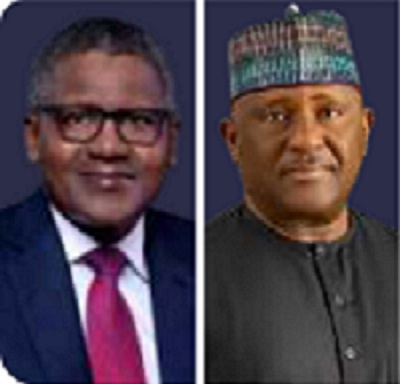
Komolafe revealed, however, that there is a provision of willing buyer- willing seller in the PIA and that the regulator (NUPRC), is guided strictly by that provision of the law. “To say the least, crude oil supply follows international principles, crude being an international citizen, … and I’ve been able to proactively put in place what we call the rule of engagement between parties, and that is already in force…”
Another scathing refutal to Dangote’s allegations is the one from NMDPRA, the medium/downstream sector regulator. Its Chief Executive, Farouk Ahmed, who briefed newsmen in Port Harcourt, dismissed claims by the Dangote Group that international oil companies were frustrating the refinery by denying the refinery of crude supply. According to him, the Dangote refinery is still in the pre-commissioning stage. “It has not been licensed yet; we haven’t licensed them yet. They are still in pre-commissioning. I think they have about 45 per cent completion,” Ahmed declared. He also alleged that the diesel produced by Dangote refinery and other modular refineries, like Waltersmith and Aradel were inferior to imported ones.
According to him, Dangote refinery had requested the regulator to stop giving import licenses to other marketers so as to be the only fuel supplier in Nigeria but warned that Nigeria cannot rely solely on the Dangote refinery for its fuel supply. He said: “We cannot rely solely on one refinery to feed the nation, because Dangote is requesting that we should suspend or stop the importation of all petroleum products, especially AGO, and direct all marketers to the refinery, that is not good for the nation in terms of energy security. And that is not good for the market, because of monopoly.”
But the most damning allegation against Dangote, attributed to ‘four trade sources,’ as reported by Reuters, is that it was reselling crude oil allocated to it to foreign refineries due to operational hitches at its refinery. Dangote promptly denied it. “This is outright falsehood as we are not authorised to sell any crude we buy from Nigeria! Also, our CDU is working and in perfect condition,” said Anthony Chiejina, the Group’s chief spokesman.
Both the executive and legislative arms of the Federal Government have waded into the bickering. The two chambers of the National Assembly have constituted adhoc committees to investigate the matter while the Minister of State for Petroleum, Senator Heineken Lokpobiri, along with key representatives from NMDPRA, NUPRC), and NNPCL, have met with top executives from Dangote Group to address and resolve the ongoing controversy surrounding the Dangote refinery. President Bola Tinubu has also intervened by directing NNPCL, holders Nigeria’s stake in the petroleum industry, to sell crude oil to Dangote refinery in Naira.
But whether these interventions can resolve the dispute fairly and permanently remain to be seen.
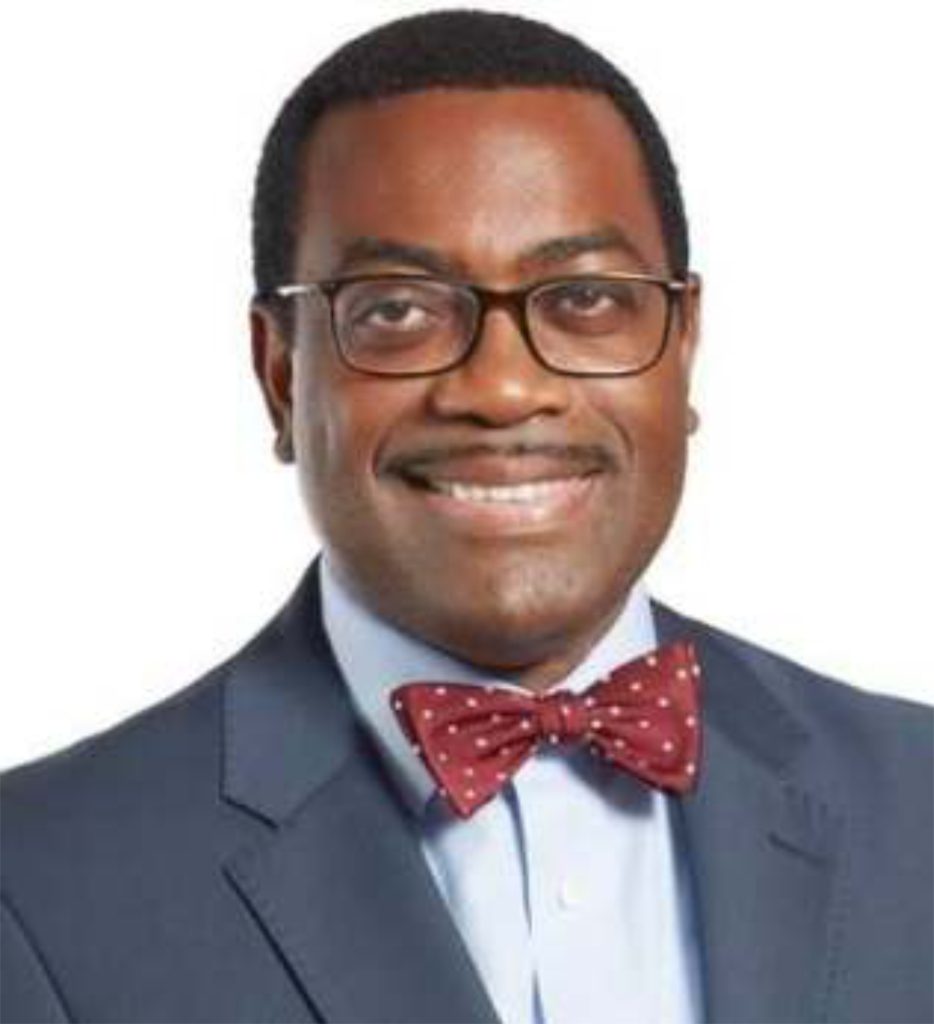
The question of whether Dangote is a monopolist also remains to be satisfactorily answered. With his stupendous wealth and consequent limitless access to credit, he invests on such a scale that makes him dominate and control whichever industry he chooses to play in. Analysts point to the fact that since he recorded huge success with that kind of scale of business in the sugar industry, he appears to have developed the dominate-and-control mindset, recording similar huge success in the flour and cement industries, before moving to Dangote Petroleum Refinery and Petrochemicals, a potential Guinness Book of Records investment, described by touring Nigerian senior journalists as “The Dangote Republic.” It is the “conspiracy and sabotage” which he is experiencing with the refinery that has forced him to halt plans to enter Nigeria’s steel industry, two months after his company had initiated plans to invest in the steel industry and expand the economy. He told journalists touring his refinery in Lagos: “We have never consciously or unconsciously stopped anybody from doing the same business that we are doing… Monopoly is when you stop people, you block them through legal means…”
What do experts say?
Some experts differ on Dangote’s definition, arguing that a monopolist is not necessarily one that prevents prospective competitors from entering the industry or forcing the exit of existing competitors. A monopoly, as defined by Investopedia, is “an individual, group, or company that dominates and controls the market for a specific good or service.”
Other economists say it is normal that any investor that commits resources on the scale Dangote does “dominates and controls” the industry and would do anything and everything, not only to protect and preserve his investments but to also earn commensurate returns on investment. They also posit that it is normal for sovereign governments in search of investments, especially by indigenous entrepreneurs, to court and pamper such big-time investors with incentives and undue favours. “No smart investor would make a $19.5 billion investment and want it to be undermined by importers,” Akinwunmi Adesina, Chairman of the African Development Bank (AfDB), said of the Dangote Refinery.
“But, is Dangote refineries anti-competitive? What is the evidence?” Akinwumi asked. The answer depends on who is providing it.
What next?
Under such circumstances, it would be difficult to establish which side is telling the truth. Some analysts say any positions taken by various stakeholders – competitors, government, consumers, etc – can only be subjective and lacking in credibility. According to the antitrust school of thought, the only route to a fair, convincing and permanent resolution of disputes over monopolistic practices is through competition or antitrust law. Antitrust laws prohibit agreements between market operators that would restrict competition, and the abuse of dominance. In Nigeria, The Federal Competition and Consumer Protection Act (FCCPA) 2018 established the Federal Competition and Consumer Protection Commission (“FCCPC”) and the Competition and Consumer Protection Tribunal (“CCPT”) for the development and promotion of fair, efficient and competitive markets in the Nigerian economy to facilitate access by all citizens to safe products and secure the protection of rights of all consumers in Nigeria.
So far, the FCCPC has remained silent on the raging row involving Dangote, its competitors and regulators. This school of thought argues that until the antitrust commission wades in, the feud will continue to linger.
But the ‘economic and trade policy’ school of thought believes the case of Dangote vs others is beyond Anti-thrust. They view it purely as a matter of a country’s industrialization and foreign trade policy. They pose the questions: Should a country allow unrestricted importation of goods to meet domestic demand? Or should it restrict imports to protect or encourage domestic production? In principle most countries go for the latter, but in reality, they practice laissez faire.
Adesina of AfDB belongs to the policy and trade school of thought. He finds it shocking that Nigeria, a world major crude oil producer, has allowed the abnormality of importing refined petroleum products for decades to become the normal. The AfDB Chairman argues that manufacturing is extremely expensive and risky, even more so in Nigeria, given the very challenging business and economic environment, fraught with policy uncertainties and policy reversals.
Adesina said: “We cannot and must not undermine, disparage or kill local industries, talk less of one that is of this scale — a jewel of industrialisation in Nigeria.
“It is more than simply delivering the cheapest product to the market. It is about domestic supply security, driving (and yes, protecting) globally competitive industries, maximizing forward and backward linkages in the local economy, job creation, reducing forex expenses and shoring up the Naira.”
He seems to have spoken the mind of the average patriotic Nigerian, especially the fuel consumer.

